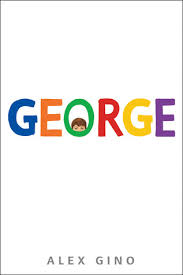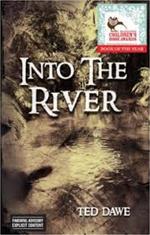Although books are challenged throughout the year, book lovers designate one week each year as Banned Books Week. This is an annual opportunity to celebrate the right to read and to savor the intellectual freedoms through the unfettered access to texts with disparate points of view. Banned Books Week (Sept. 27–Oct. 3) was initiated out of growing concern over the number of challenges to books in schools, bookstores, and libraries. The event debuted in 1982.
During this past year, the American Library Association’s Office of Intellectual Freedom reported 311 book challenges. The 10 most challenged titles of 2014 are as follows, and several were reviewed on Literacy Daily:
1. The Absolutely True Diary of a Part-Time Indian by Sherman Alexie
2. Persepolis by Marjane Satrapi
3. And Tango Makes Three by Justin Richardson and Peter Parnell
4. The Bluest Eye by Toni Morrison
5. It’s Perfectly Normal by Robie Harris
6. Saga by Brian Vaughan and Fiona Staples
7. The Kite Runner by Khaled Hosseini
8. The Perks of Being a Wallflower by Stephen Chbosky
9. A Stolen Life by Jaycee Dugard
10. Drama by Raina Telgemeier
I strongly suggest you check out these titles and decide for yourself what you think about the books rather than simply avoiding them because others have filed a complaint about them. Each of these books merits reading, discussion, and contemplation of the ideas expressed and the issues raised in their pages. In this column, I will introduce two of the books already raising the hackles of those who would decide what others can read.
One book, the award-winning Into the River, already has been banned in New Zealand, where it is now a crime to supply, distribute, or even display it. When will these censorious individuals realize no one can decide for someone else what it is appropriate to read and pulling books from shelves makes them only more alluring to many? Seek out these books and others that offer different perspectives on life, open your mind, and join the conversation with other readers.
Ages 9–11
George. Alex Gino. 2015. Scholastic.
 Although it fails to challenge several gender stereotypes, this important book has the potential to change minds and attitudes. Given the world's preoccupation with the transition of Bruce Jenner to Caitlyn Jenner, it’s being published at the right time. Fourth grader George has always felt more like a girl than a boy, and when she—the author uses the pronoun with which George prefers to identify herself—tries out for the role of Charlotte in the school dramatization of Charlotte's Web, at the urging of her supportive best friend Kelly, even her teacher, Ms. Udell, fails to understand. Readers will empathize with George's attempts to tell her mother how she feels, only to be ignored or to have her feelings discounted or misunderstood. The details the author provides about George's discomfort with her male anatomy and the constant harassment she endures from the class bully, Jeff, ensure that readers will feel sympathetic toward George. Although the story and George's struggles ultimately are resolved (perhaps too easily), the book reaches into readers' hearts and plucks their heartstrings, a gentle reminder of how hard it can be to "be who you are" when the world seems unable to accept you for yourself. This book will have readers talking, and is as groundbreaking for the younger set as Susan Kuklin’s Beyond Magenta was for an older audience. Even the cover, showing George peeking through the letter O of her name, makes it impossible to tell for sure George's gender. Read this book, and imagine the possibilities and the limitations placed by how society determines what it means to be a boy or a girl. Then consider how difficult it is to hide so much of yourself from the world around you, even your loved ones.
Although it fails to challenge several gender stereotypes, this important book has the potential to change minds and attitudes. Given the world's preoccupation with the transition of Bruce Jenner to Caitlyn Jenner, it’s being published at the right time. Fourth grader George has always felt more like a girl than a boy, and when she—the author uses the pronoun with which George prefers to identify herself—tries out for the role of Charlotte in the school dramatization of Charlotte's Web, at the urging of her supportive best friend Kelly, even her teacher, Ms. Udell, fails to understand. Readers will empathize with George's attempts to tell her mother how she feels, only to be ignored or to have her feelings discounted or misunderstood. The details the author provides about George's discomfort with her male anatomy and the constant harassment she endures from the class bully, Jeff, ensure that readers will feel sympathetic toward George. Although the story and George's struggles ultimately are resolved (perhaps too easily), the book reaches into readers' hearts and plucks their heartstrings, a gentle reminder of how hard it can be to "be who you are" when the world seems unable to accept you for yourself. This book will have readers talking, and is as groundbreaking for the younger set as Susan Kuklin’s Beyond Magenta was for an older audience. Even the cover, showing George peeking through the letter O of her name, makes it impossible to tell for sure George's gender. Read this book, and imagine the possibilities and the limitations placed by how society determines what it means to be a boy or a girl. Then consider how difficult it is to hide so much of yourself from the world around you, even your loved ones.
Ages 15+
Into the River. Ted Dawe. 2012. Mangakino University Press.
 This New Zealand title, the supreme winner in the NZPost Book Awards, follows a young Māori boy from a small rural town on the country’s east coast to an exclusive boarding school in Auckland, where he receives a scholarship. The boy, Te Arepa, or Devon as his new classmates call him, is fully aware of the importance of his name—that of a brave ancestor credited with saving the whole tribe and of his potential to lead his people in the future. Not only does the youth experience cultural dissonance and loneliness, but he also encounters bullying, peer pressure, relationships, drugs, and loss. As Te Arepa feels increasingly marginalized and loses pieces of himself, bit by bit, readers will ask themselves what makes him so compliant and unable to resist those who seem determined to dismantle him and what makes those who surround him so willing to erase his identity. Clearly, Devon may fit more cleanly in the modern world than Te Arepa, but at what cost? Critics of the book have expressed concern over its language and what they term adult themes. I didn’t notice anything any more shocking in its pages than many young adult titles I’ve read in the past.
This New Zealand title, the supreme winner in the NZPost Book Awards, follows a young Māori boy from a small rural town on the country’s east coast to an exclusive boarding school in Auckland, where he receives a scholarship. The boy, Te Arepa, or Devon as his new classmates call him, is fully aware of the importance of his name—that of a brave ancestor credited with saving the whole tribe and of his potential to lead his people in the future. Not only does the youth experience cultural dissonance and loneliness, but he also encounters bullying, peer pressure, relationships, drugs, and loss. As Te Arepa feels increasingly marginalized and loses pieces of himself, bit by bit, readers will ask themselves what makes him so compliant and unable to resist those who seem determined to dismantle him and what makes those who surround him so willing to erase his identity. Clearly, Devon may fit more cleanly in the modern world than Te Arepa, but at what cost? Critics of the book have expressed concern over its language and what they term adult themes. I didn’t notice anything any more shocking in its pages than many young adult titles I’ve read in the past.
Barbara A. Ward teaches graduate and undergraduate courses in literacy at Washington State University, Pullman. She spent 25 years teaching in the public schools of New Orleans, where she worked with students at every grade level, from kindergarten through high school as well as several ability levels. She is certified in elementary education, English education, and gifted education. She holds a bachelor's in communications and a master's in English Education from the University of Tennessee and a PhD in Curriculum and Instruction from the University of New Orleans.
These reviews are submitted by members of the International Reading Association's Children's Literature and Reading Special Interest Group (CL/R SIG) and are published weekly on Literacy Daily.